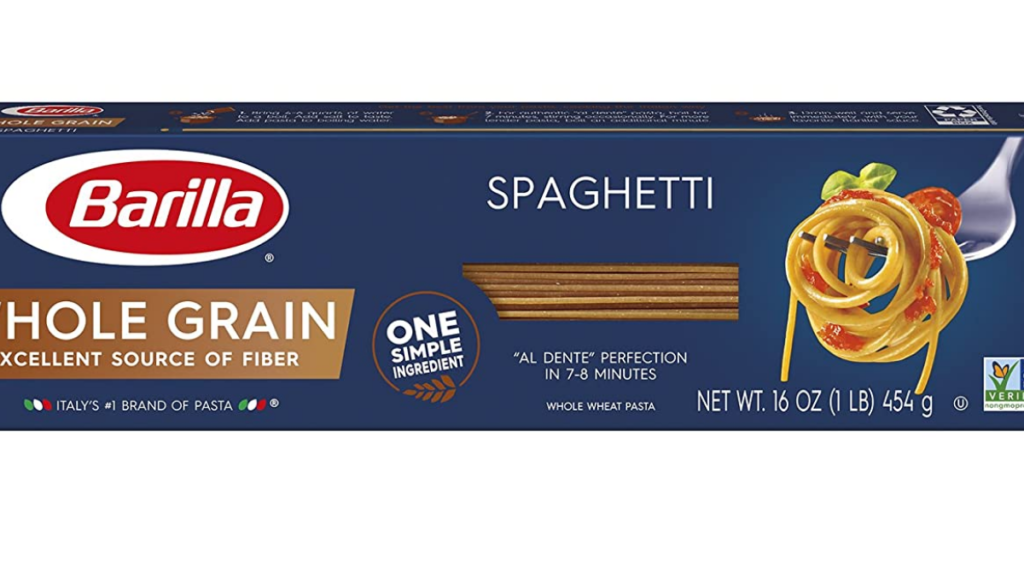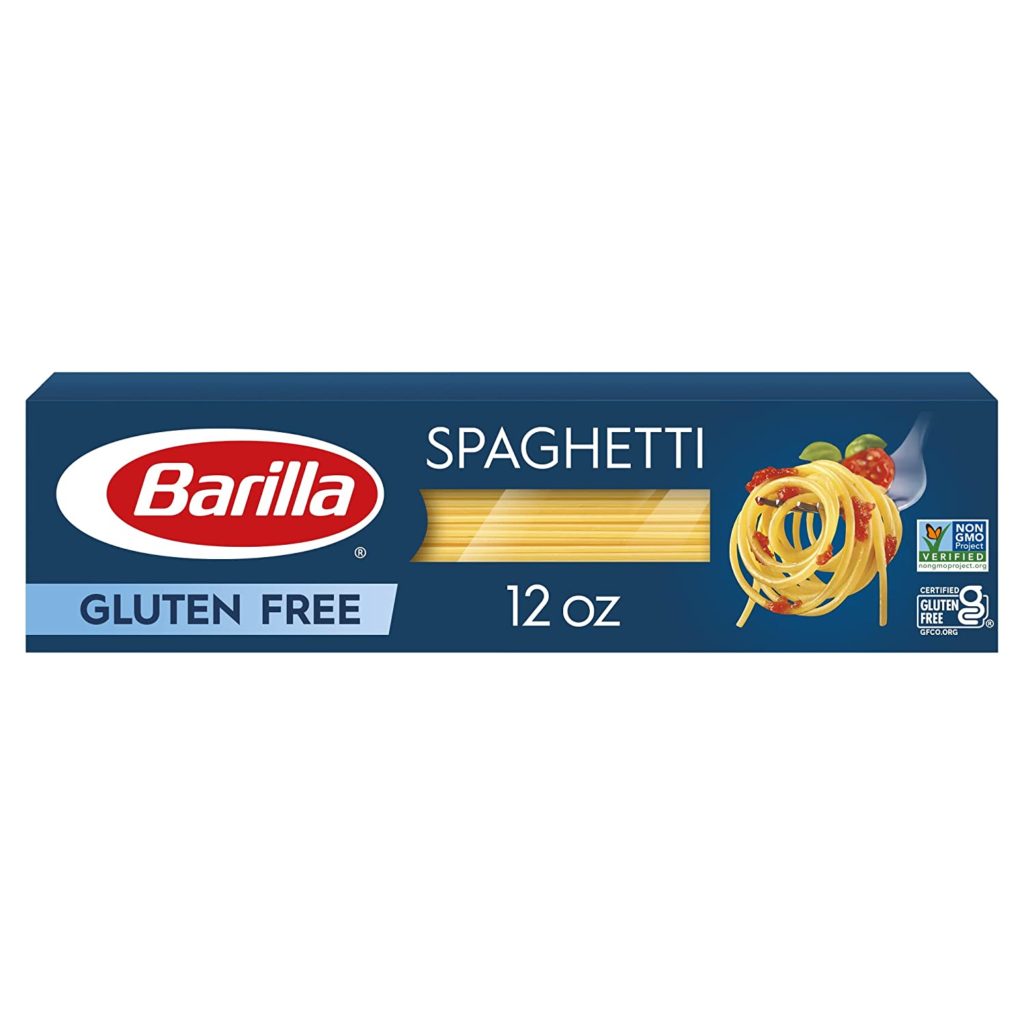The Nutrition Facts panel on the Barilla Multigrain Pasta package offers information on carbs, fat, and calories. Calorie information for various types of pasta can also be found on the label. BARILLA PASTA, for example, has a carbohydrate content of 74% and a fat content of 7%. However, you should be cautious of this dish’s sugar and sodium content. Look up the RDI (Recommended Daily Intake) for a specific nutrient to prevent confusion. This will help you avoid consuming too much sodium or other hazardous elements.
Barilla Pasta Nutrition Facts
Barilla Multigrain Pasta
There are numerous reasons to eat pasta. It is delicious, simple to prepare, and inexpensive. It’s adaptable because it works well with other healthful components such as lean proteins, veggies, legumes, and fruits. Water and durum wheat are the ingredients in Barilla pasta, making it a healthy option.
It’s an enhanced refined grain with no added sugars or solid fats, and it has a reduced carbon footprint than other animal-based foods because it’s a plant-based diet. Barilla tests the durum wheat it uses to make its pasta to guarantee that mycotoxins (a group of naturally occurring compounds produced by specific molds) levels are much below the legal tolerance thresholds, which are already relatively low.
Pasta is a low-glycemic carbohydrate that is also a complex carbohydrate. Low-GI foods, defined as those with a GI of 55 or below, take longer to alter blood sugar levels and are metabolized slowly by the body. As a result, they give you consistent energy and keep you fuller for longer.
Is Barilla Multigrain Pasta Healthy?
There seems to be an endless supply of multi-grain and whole-wheat goods on the market. One is Barilla multi-grain pasta, which may be healthier than refined or enriched versions. Milled grains with the outer layers removed make enriched or refined pasta.
Essential nutrients are also lost as a result of this process. Fiber, vitamin B, vital fatty acids, and vitamin E are among them. It is helpful to your general health to switch to whole-grain pasta and other wheat products. It is beneficial in the following ways:
Heart Health
Whole grains have an essential role in heart health. According to studies, people who consume an adequate amount of whole grains daily have a 20 to 30% lower risk of cardiovascular disease. Making whole grains a regular part of your diet can help you reduce your:
- Total cholesterol levels
- Low-density lipoprotein (LDL), also known as “bad” cholesterol
- Fat in your blood is called Triglycerides,
- Insulin levels
Diabetes Prevention
Multi grains aid in the maintenance of insulin levels, which aids in the improvement of glucose regulation in the body. Including enough whole grains in your diet reduces your chance of acquiring type 2 diabetes by about 30%. The essential elements of the grain are still present in multi-grains, and they are difficult to digest, which slows the digestion process and reduces blood sugar rise.
Digestive Health
Fiber is what most people think of when they think about whole grains. Whole-grain fiber, which is absent in refined or enhanced grains, is vital for:
- Regulating bowel movements
- Relieving constipation
- Decreasing diarrhea
- Lowering inflammation
Complications can be avoided with a well-supported digestive system and regular bowel motions. Your small intestine will be less stressed if you have regular bowel movements, which helps prevent diseases like a diverticular disease.
Weight Management
Multi grains contain fiber, which helps you maintain a healthy weight by helping you feel fuller and faster. As a result,
- Reduced caloric intake
- Longer lasting fullness
- Decreased need for insulin
On the other hand, whole-grain pasta isn’t the only way to lose weight. Whole grains must be combined with a diet low in fat and cholesterol, and your diet as a whole works together to keep you healthy.
Cancer Prevention
Although studies have yielded conflicting outcomes, whole grains have shown some promise in the fight against cancer. According to much research, persons who consume enough whole grains have a 21% lower risk of developing colorectal cancer.
Consumption of whole grains has also been linked to a reduced risk of gastrointestinal cancer. This is thought to be due to the range of vitamins included in whole grains, which provide various cancer-fighting benefits, including:
- Prevent oxidative damage
- Affect hormone levels, which may lower the risk of hormone-related cancers
- Parts of whole grains may bind to carcinogens
BARILLA Gluten-Free Spaghetti, 12 Ounce – Non-GMO Gluten-Free Pasta
Features:
- GLUTEN-FREE PASTA: Produced in a dedicated gluten-free facility and made with two main ingredients – corn and rice
- MAKE DELICIOUS PASTA MEALS: Serve this spaghetti with a pasta sauce, fresh vegetables, or fish for an authentic Italian feast
- GREAT TASTING PASTA: Classic pasta taste and al dente texture you expect from BARILLA, perfect for the whole family
- FREE FROM MAJOR ALLERGENS: This pasta is gluten-free, fish-free, lactose-free, peanut-free, shellfish-free, tree nut-free, and soy-free; Suitable for vegans and vegetarians
- NON-GMO GLUTEN-FREE PASTA: Gluten-free spaghetti is crafted with the highest quality Non-GMO ingredients
- QUICK & EASY TO COOK PASTA: “Al dente” perfection in 10-11 minutes
- PASTA THE WHOLE FAMILY CAN ENJOY: Feel good about including BARILLA Gluten-Free in your favorite pasta dishes
Conclusion
Because of its high fiber content, wholewheat pasta is the most acceptable pasta option, as it will keep you fuller for longer, improve digestive health, and reduce your risk of heart disease, stroke, and type 2 diabetes. In any recipe, you can substitute wholewheat pasta for white spaghetti.
Compared to refined pasta, whole-grain pasta has fewer calories, more fiber, and more micronutrients. Fiber is a type of dietary fiber that passes through the gastrointestinal tract undigested and aids in the feeling of fullness. As a result, whole-grain pasta may be more successful in lowering appetite and cravings than refined pasta.





